Pacific Guidelines for the Development of National Quality Frameworks for ECCE
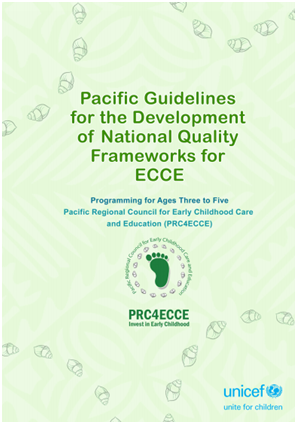

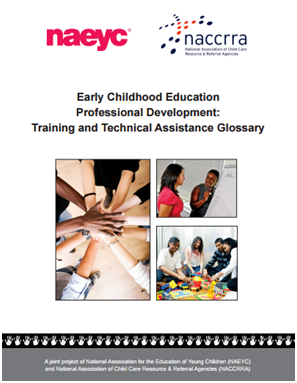
Professional preparation and ongoing professional development (PD) for the early childhood education workforce is essential to providing high-quality services to children and families. Consistent terminology and definitions related to PD methods, roles, knowledge, and capabilities have emerged as a critical issue for the early education field. Recently, states have experienced new early childhood education system challenges and needs related to training and technical assistance (TA). The urgency of these issues grows, particularly as states increase their focus and work on quality improvement activities, including quality rating and improvement systems (QRIS).
To support related efforts, the National Association for the Education of Young Children (NAEYC) and the National Association of Child Care Resource and Referral Agencies (NACCRRA) jointly developed this glossary of professional development, training, and technical assistance (TA) terms. Additionally, NAEYC and the Alliance of Early Childhood Teacher Educators (a collaborative effort of the National Association of Early Childhood Teacher Educators and ACCESS–Associate Degree Early Childhood Teacher Educators) will continue to explore and develop national education-related definitions as a companion to this training and TA glossary.
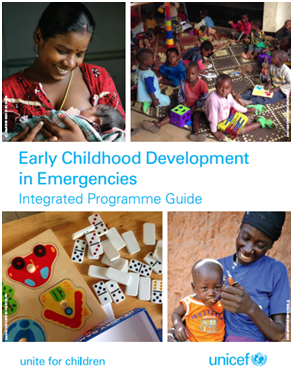
The goal of the integrated programme guide for ECD in emergencies is to guide the humanitarian community in designing a response that takes into account the needs of young children. This programme guide can be used in times of emergency preparedness, response, and early recovery, and for building resilience. It is designed for use by UNICEF Programme Officers as well as for representatives from other UN agencies, NGOs and government divisions responsible for designing, implementing, monitoring and evaluating ECD interventions.
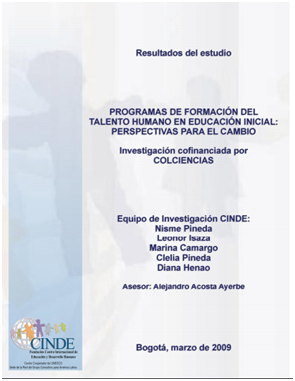
This document is an integral part of the set of technical references of the Strategy “De Cero A Siempre”, which seeks to guide those who have responsibilities in the Comprehensive Early Childhood Care (AIPI) about the promotion of child development through the lenses of protecting children’s rights. In this sense, these Guidelines are in line with other Guidelines published under the strategy and aims at informing the qualification of all those who work in the field of early childhood. The document is understood as a qualification of the workforce in the field of education that aims, on the one hand, to broaden, deepen and renew the knowledge previously acquired by people who work -directly or indirectly- with early childhood and on the other hand, to improve early childhood care practices in such a way that they aim at the holistic development of children aged 0 to 6 years. The Guidelines are accompanied by the operative guide and the monitoring and evaluation proposal.
Authors: Year of Publication:2013
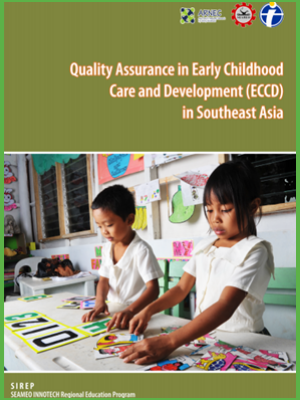
SEAMEO INNOTECH has prioritized Early Childhood Care and Development (ECCD) in Southeast Asia as one of its programmatic areas to support universalization of ECCD in the region. As part of its research agenda, the Center has completed an investigation of the ECCD quality assurancepolicies, mechanisms and models being implemented by SEAMEO member countries. Out of the 11 SEAMEO member countries, ten participated in the study. Data collected from these countries were analyzed to generate a regional ECCD quality assurance profile. SEAMEO INNOTECH is now pleased to share these findings in this latest publication.
The current publication discusses the current and depth of these ECCD policies, mechanisms and models as well as issues and challenges that still need to be addressed by SEAMEO member countries.
One major finding of the study shows that although there are ECCD policies and standards already in place in most SEAMEO member states, there is an absence of explicit ECCD quality assurance frameworks that could serve as an anchor for a holistic ECCD program. Because of this absence, most ECCD policies and standards in Southeast Asia are limited to qualifications of pre-school heads and teachers, early learning curricula, and requirements of physical facilities.
It is hoped that this publication will support SEAMEO member countries in their efforts to act on strengthening their ECCD policies and standards and formulating a comprehensive and holistic ECCD quality assurance framework that would consider the varied needs of pre-school children.
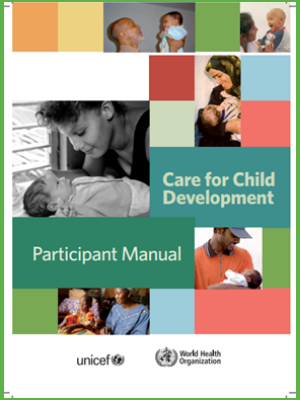
Children need good care. Their survival through childhood depends on adults who notice when they are hungry or sick, and are able to meet their needs.
Good care also means keeping children safe from harm, and giving them love, attention, and many opportunities to learn. From birth, children build ties to special adults and look to them to learn important skills. What children learn from these relationships helps to prepare them for life.
This course on Counsel the Family on Care for Child Development supports the efforts of families and others in your community who are trying to raise healthy, happy children. They may live in poverty and face many other challenges. The children they raise may be their own. Or they may have accepted the task of raising other children in their family or community. You can help them be better able to care for their children, even under difficult conditions.
Course Objectives
At the end of the course on Counsel the Family on Care for Development, you will be able to:
As you learn these tasks, you will focus on observing caregivers with their children. Using good communication skills, you will counsel the family.
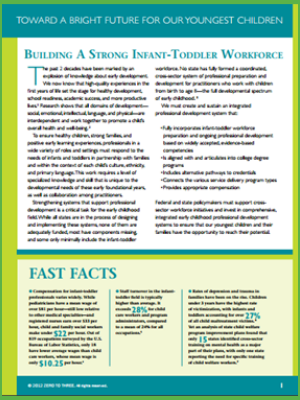
This report focuses on strengthening systems that support professional development as a critical task for the early childhood development field. The report advocates for an integrated professional development system that:
The report defines an early childhood professional development system that includes the infant-toddler workforce, highlights the six essential policy areas that need to be addressed and shares policy recommendations in context.
Authors: Year of Publication:2012
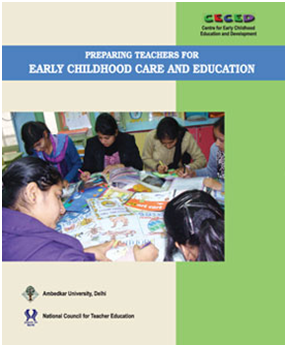
Preparing Teachers for Early Childhood Care and Education brings forward several issues on teacher preparation which are not only significant in current contexts, but also for the future. The study provides data on the following emerging issues:
The report provides a wide range of recommendations in order to address the above issues. Recommendations evolve around the following topics: 1) duration of the course; 2) ensuring equitable access with quality; 3) strengthening regulation of standards; 4) improve practice teaching; 5) involving teacher educators; 6) upgrading the curriculum; and 7) maximizing the potential of open and distance education.
Authors: Year of Publication:2011
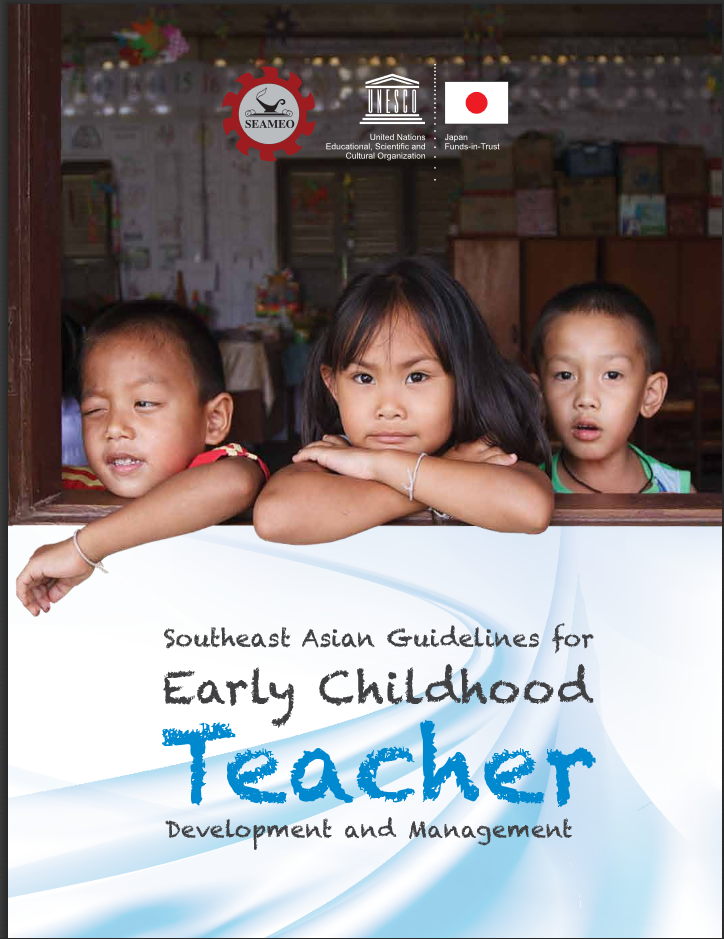
Southeast Asian Guidelines for Early Childhood Teacher Development and Management focuses on recommendations based on both regional and international experiences concerning how to best manage and further enhance the quality of early childhood teachers in terms of the following aspects:
2016
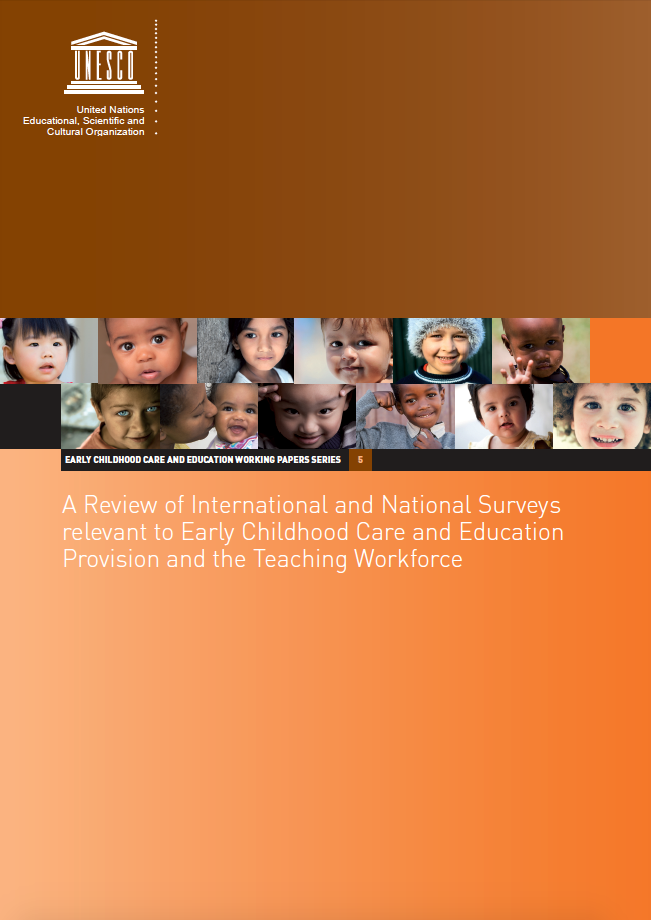
This literature review of national and international surveys of early childhood care and education (ECCE) provision and the teaching workforce was commissioned by UNESCO to inform the development of survey instrument and methodology for the Survey of Teachers in Pre-Primary Education (STEPP) project (May 2015–December 2017). The key tasks set by UNESCO were to:
The main purpose of the surveys was to make visible information about the teacher workforce in order to analyse and compare policy, to highlight issues that might be supported by policy and practice and to make plans within countries to enhance the teacher workforce. Survey information can also generate theoretical understanding by enabling relationships between variables to be examined.
The report presents lessons learnt from the implementation of the surveys as well as recommendations for future research.